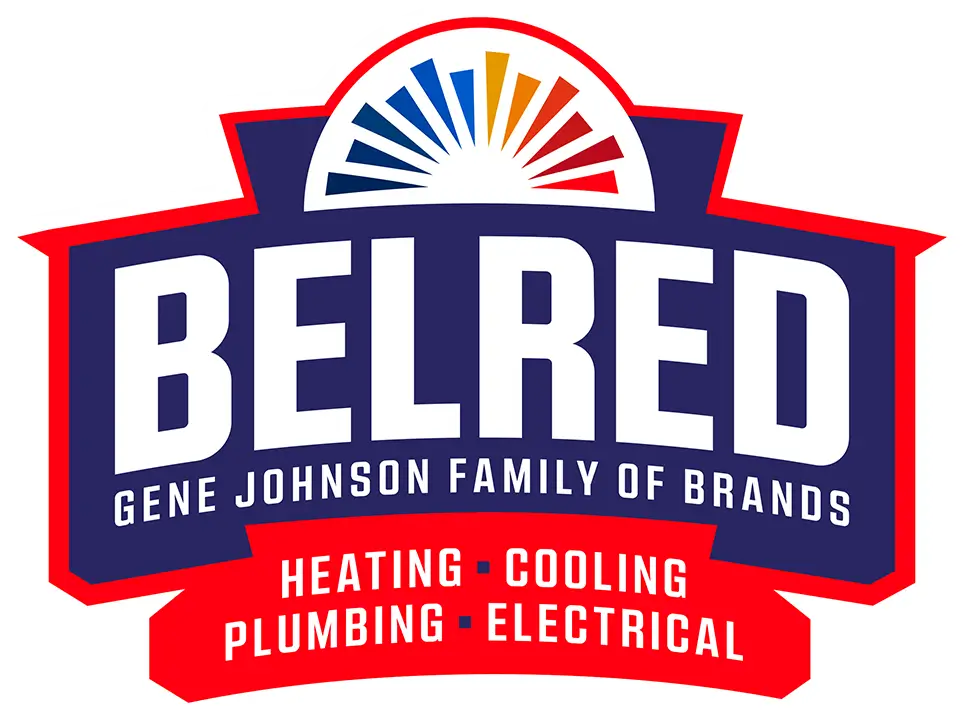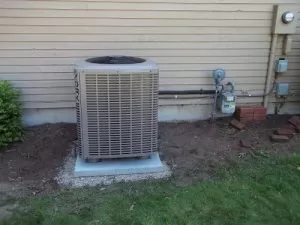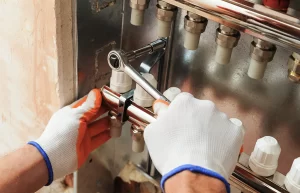If your old and reliable air conditioner is suddenly on the fritz, it may be running low on “fuel.” Did you know your air conditioner uses a composite of resources to alter temperatures, including chemicals?
Don’t worry! The chemicals never make it into your air, but they are vital in heat transfer.
Air conditioners are typically reliable and stable sources of quality airflow. However, it only stays like that for a while, especially without routine maintenance.
Is Your Air Conditioner Running Low on Refrigerant?
Your air conditioner is a sophisticated system running various functions to produce a quality outcome. Your AC unit requires regular tune-ups for various components to provide quality air distribution.
If you notice lackluster air conditioning from your HVAC system, it may have depleted refrigerant levels. Air conditioning is only plausible with refrigerant to facilitate heat transfer.
To ensure your air conditioning unit is always in tip-top shape, maintain each component, even lesser-known ones.
What is Freon and How Does It Alter Temperatures?
Refrigerant, coolant, better known as Freon, is a liquid used as a medium to absorb and disperse heat. It is used in temperature-altering mechanisms, especially in refrigerators and air conditioners.
Refrigerants were made up of fluorocarbons, mostly chlorofluorocarbons. Chlorofluorocarbons, or CFCs, are being phased out due to their ill side effects on the planet’s ozone layer.
These days, coolant contains less-harmful elements. You will find other chemical compounds in household coolants, such as ammonia, sulfur dioxide, or propane.
Non-halogenated hydrocarbons and other compounds are less harmful to the surrounding environment. These chemical compounds go from liquid to gas to produce your desired temperature.
Contrary to popular belief, coolant does not produce cool air. Coolant extracts ambient heat, transfers them outdoors, and absorbs as much heat as needed for your home to reach your desired temperature.
According to thermodynamics, there is no “cool air,” only the absence of heat particles. Fewer heat particles in your environment allow cooler temperatures.
The lower the temperature your home demands, the more Freon it requires to facilitate heat transfer. It is first fed into your condenser coil in its liquid form.
Your evaporator coil then evaporates Freon into its gaseous state using the heat particles in your environment. Without coolant, there is no medium for your home’s heat particles to dissipate before evaporating outdoors.
The evaporation of refrigerant outdoors is not as harmful to the environment. However, it is still harmful to inhale, ingest, and handle with bare hands. Depending on your skin’s sensitivity, you may suffer from rashes or second-degree burns.
How Long Does Freon Last?
Freon itself does not expire, dissipate, or get depleted. It can last forever on its own because coolants are made up of lasting chemicals that do not counteract one another.
Expiration occurs when a mixture of chemicals reacts adversely to at least one internal component. For example, milk expires due to the number of bacteria and other microorganisms in the mix.
Bacteria eat away at yeast and lactose rather quickly but occur naturally in production. Microbes from the mothering cow develop and transfer into the milk.
Don’t let this deter you from milk consumption. Milk manufacturers extract harmful microbes to ensure quality edible milk. Additionally, most naturally occurring microbes are not as harmful to human health.
Manufacturers only ever extract pathogens that are harmful to consumers. Freon is secured within closed systems and controlled by different safety mechanisms.
It is a controlled substance, but it is not made for human consumption in any way. There are harmful chemicals in your coolant, and any direct contact may be hazardous to your body.
However, it can leak out of its containers, depleting refrigerant levels and posing various mechanical and bodily risks.
How Long Does Freon Last in AC Unit?
While Freon does not have a specific lifespan, it may still need replenishment. Your AC systems cannot deplete its presence through Freon serving its function.
The liquid coolant lies within a permanently closed system in your air conditioner. Only recycled Freon produces all temperature alterations in your HVAC system.
Your air conditioner only “runs out” of Freon when it literally runs out of the unit. Running out of Freon means there is a refrigerant leak.
Does Your Air Conditioner Have a Refrigerant Leak?
You have heard about HVAC units “giving out” from your friends, especially during summer. However, you just got your new AC system, and it’s already underperforming.
Start looking around the bottom of your indoor and outdoor units. You might find a puddle beneath the inside or outside AC unit.
Refrigerant leaks are easily noticeable. You might notice leaks and subpar performance from your otherwise reliable air conditioning.
What Causes Refrigerant Leaks?
There are various causes behind leaks. The most common cause behind a leak is typical wear and tear. While Freon lasts forever, its containers may give in to its chemical reactions.
Additionally, copper coils may develop formic corrosion, instigating a leak. Sometimes, when components are underperforming, your AC system still receives the same power, which may throw other elements into overdrive.
If your air filters, for example, are hindering blower fans, motors may go into overdrive. Motors may deliver more power to other components to achieve your desired temperature.
An overcompensating coil can cause refrigerants to burn through lines and leak into internal systems. Freon touching other delicate components may disrupt resource and distribution flow.
What are the Effects of Freon Leaks?
Your AC may be in real trouble now. Coolant saturation lessens your AC’s service life, especially when it goes untreated for too long.
Without coolant, your heating or cooling system may not alter temperatures. You will notice your AC blowing hot air, even when you set controls to lower temperatures.
You may notice one or more of these symptoms if your air conditioning system is leaking:
- Improper heating or cooling.
- Visible leaks underneath air handlers and outdoor units.
- Unusual noises, such as bubbling or hissing from AC units.
- Sudden surges in electricity bills.
- AC system automatically cycles ON and OFF.
It would be best if you took extra precautions with any leaking from your HVAC systems.
Is a Freon Leak Hazardous?
Your HVAC system relies on its Freon level to perform correctly and with energy efficiency. Thanks to Freon leaks, you can say goodbye to your energy-efficient and dependable air conditioner.
However, surging energy bills aren’t the only hazard related to a refrigerant leak. There are health hazards related to handling coolant chemicals.
Handling coolant without protective gear may result in any of the following symptoms:
- Skin rashes
- Eyes, ears, nose, and throat irritation
- Asthma
- Allergies
It is best to call professionals to help you handle refrigerant leaking from your AC units. It is hazardous to your health and the well-being of your entire HVAC system.
Without immediate leak repair, refrigerant circulates around components that may succumb to exposure. It can cause internal and external damage, which may require costly repairs.
Check Refrigerant Lines
Refrigerant is a bubbling agent and may rip through PVC material. It is rare, or at least not when unprovoked.
A refrigerant leak typically comes from tears and abrasions in refrigerant lines. It does not tear on its own. However, a malfunctioning outdoor or indoor AC coil may cause leaks.
Any overcompensating or underperforming component may lead to leaks and other problems. It can start from good old-fashioned dust!
Is your Air Filter Clogged?
Dust, dirt, and debris may sound like a problem for your air filter, and it is. Still, your air conditioner can suffer from dirty air filters. It can easily cause clogs that may hinder blower fans and motors.
Clogs can cause a build-up of hot air, which may react poorly to refrigerant gas. It may cause hazardous sludge to run through your indoor and outdoor coils.
The hazardous domino effect can require a new Freon installation or another air conditioning replacement. It would help to know more about the entire refrigerant system.
The Refrigerant System
Freon is inside a closed system and circulates between two coils for proper heat transfer, allowing temperature alterations. Proper refrigerant levels allow quality and efficient heating or cooling.
An HVAC contractor or technician has special electronic equipment to measure your air conditioner’s refrigerant level. An AC manifold gauge is a professional tool that tells you how much refrigerant is in your HVAC system.
If there aren’t any noticeable indications of refrigerant leaks, professionals can pick up on them during your annual AC maintenance.
HVAC Maintenance and Repair
Keeping up with yearly AC maintenance and inspection may help nip the leak in the bud. Part of AC maintenance services includes checking refrigerant levels.
They double-check the condition of your air filter and Freon level, preventing clogs in filters, lines, or anywhere else refrigerant circulates.
If you need Air Conditioning Maintenance in Mukilteo, Washington, BelRed has got just the guys for the job!







